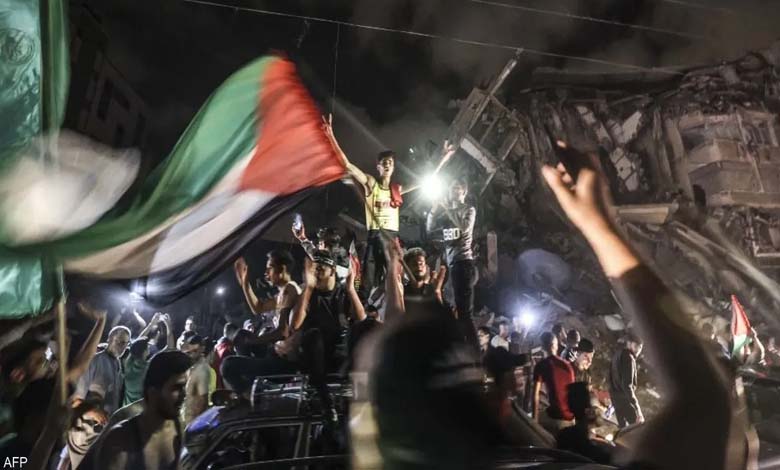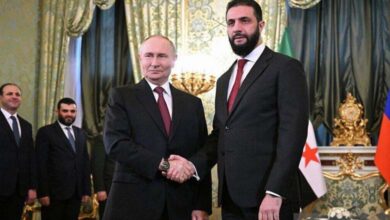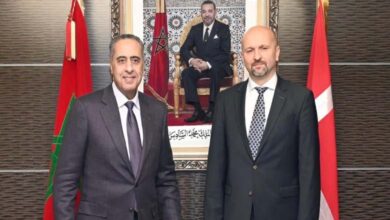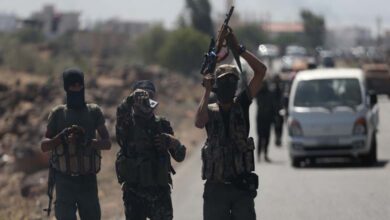Morning of truce… Gaza bids farewell to war

A rare, quiet morning dawns over Gaza. The ceasefire has not yet officially taken effect, but its calming breeze already sweeps across the devastated enclave. Exhausted by months of violence, Gazans have wasted no time celebrating the long-awaited return of peace.
-
Gaza Negotiations: Cautious Optimism in Sharm el-Sheikh as Mediators Join the Talks
-
The Fire of Loss in the Gaza War: No Bodies, No News
In the early hours of Friday, the Israeli government approved the first phase of U.S. President Donald Trump’s peace plan for Gaza. The agreement includes the release by Hamas of all hostages—both alive and dead—held in the Strip, the release of Palestinian prisoners by Israel, a ceasefire, and the entry of humanitarian aid into the war-ravaged territory.
Prime Minister Benjamin Netanyahu’s office stated that “the government has just approved a framework to secure the release of all hostages—alive or dead.” The decision marks a crucial milestone toward ending the two-year-long war between Israel and Hamas, which has killed tens of thousands and caused an unprecedented humanitarian disaster.
-
The Second Anniversary of the War: Terrifying Losses Beyond Numbers in Gaza
-
Two years into the Gaza war, Israel has gone from international sympathy to global isolation
According to Israeli government spokesperson Shosh Berdsian, the agreement will come into effect within 24 hours of its approval. Hamas will then have 72 hours to release all hostages by Monday. Within the same timeframe, Israeli forces will withdraw from several areas but maintain control over about 53% of the Gaza Strip.
The agreement was signed in Egypt, with all relevant parties endorsing the first phase of Trump’s plan. Berdsian confirmed that the final draft had been signed in Cairo, focusing on the release of hostages captured during Hamas’s October 7, 2023, attack.
-
Two Years of War in Gaza: How Destruction Spread Like Wildfire
-
900,000 Displaced: Israel’s Account of Civilians Fleeing Gaza City Southward
Israeli Foreign Minister Gideon Saar declared that “the release of the hostages must mark the end of the war.” However, far-right ministers Bezalel Smotrich and Itamar Ben Gvir announced their opposition to the deal, rejecting the release of Palestinian prisoners serving life sentences.
Hamas negotiator Khalil al-Hayya, who recently survived an Israeli airstrike in Doha, said the movement had received guarantees from mediators and the U.S. administration confirming that “the war is completely over.”
The deal resulted from four days of indirect negotiations in Sharm el-Sheikh, involving American, Egyptian, Turkish, and Qatari mediators.
-
Dangerous Combat Zone: Israel Warns Gaza Residents Against Returning
-
Heavy Bombardment: Israeli Fire Defies Trump in Gaza
Meanwhile, Donald Trump announced his plan to travel to the Middle East on Sunday, saying from the Oval Office: “The hostages will return Monday or Tuesday. I plan to be there.” He added that “no one will be forced to leave Gaza” under his plan.
In Washington, senior officials announced the deployment of 200 U.S. military personnel to the Middle East to oversee the agreement’s implementation. Admiral Brad Cooper, the new head of U.S. Central Command, will lead the mission, but no American troops will enter Gaza. Their role will be supervisory—to monitor and ensure compliance with the ceasefire, and to help form a multinational stabilization force.
-
Gaza Residents Back Trump’s Plan and Shout at Hamas: Enough
-
Gaza on the fire of waiting… Is a “crescent” of truce appearing on the horizon?
In Gaza, celebrations erupted as young Palestinians gathered outside Nasser Hospital in Khan Younis, singing and dancing to patriotic songs. “Despite the pain and loss, we are happy. This is a great day after two years of war,” said Ayman al-Najjar to AFP.
In Tel Aviv, thousands of Israelis gathered in “Hostages’ Square,” hoping for the long-awaited return of their loved ones. “We couldn’t work today. The entire country has waited two years for this moment,” said Rachel Perry.
According to the Israeli army, of the 251 people kidnapped and taken to Gaza on October 7, 2023, 47 remain in captivity, including at least 25 confirmed dead.
-
Last Vessel of the Flotilla of Resilience Continues Sailing Toward Gaza
-
Trump’s Deadline for Hamas Nears Its End… Gaza’s Displaced Caught Between Hardship and the Inability to Escape
Israel’s military campaign in Gaza has killed tens of thousands of Palestinians and created a deep humanitarian crisis. In a rare interview with Israeli Channel 12, Palestinian President Mahmoud Abbas called it a “great day” and expressed hope for “peace, security, and stability” between both sides.
Even before the government’s approval, explosions and artillery fire were heard in central and southern Gaza on Thursday evening. Egyptian President Abdel Fattah al-Sisi urged Israel to “maintain calm or cease fire” until the agreement was signed, warning that continued strikes “contradict the spirit of the truce.”
A Palestinian official stated that the living hostages would be released in exchange for about 2,000 Palestinian prisoners, alongside partial Israeli withdrawals and expanded humanitarian access.
-
Gaza Developments: Israel Shuts Down the Last Passage from South to North
-
Trump and Netanyahu Announce Gaza Peace Plan Amid Uncertainty Over Hamas’ Response
During a phone call, Netanyahu thanked Trump for his “global leadership,” saying he “deserves the Nobel Peace Prize.”
A second phase of Trump’s plan will begin immediately after the first, envisioning a technocratic Palestinian committee to administer Gaza under a “Peace Council” led by Trump and former British Prime Minister Tony Blair, without Hamas participation. Hamas has rejected the proposal.
Trump added that Hamas’s disarmament will be a key condition of the second phase. While Hamas has agreed to the ceasefire and hostage release, it insists on discussing Gaza’s political future before addressing disarmament.
Two previous ceasefires, in November 2023 and early 2025, allowed limited prisoner exchanges. This truce, however, appears to mark a more decisive step toward ending one of the region’s most devastating wars.












